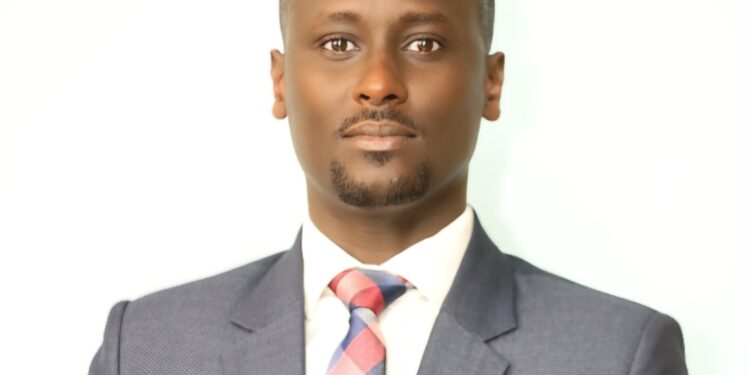As Uganda looks ahead to its political landscape in 2026, the question of leadership looms large. One name that has been synonymous with Ugandan politics for over three decades is that of President Yoweri Kaguta Museveni. His presidency, which began in 1986, has been marked by significant milestones and achievements, shaping the nation in various ways. In this article, I explore in my opinion President Museveni’s legacy, his accomplishments, and why he could be the right choice for Uganda’s continued progress in 2026.
Economic Transformation:
One of the pillars of President Museveni’s legacy is the economic transformation that Uganda has undergone during his tenure. Under his leadership, the country has experienced sustained economic growth, with a focus on infrastructure development, agriculture, and industrialization. The expansion of road networks, the development of the energy sector, and investments in key industries have all contributed to Uganda’s economic resilience. Under his leadership, there has been a remarkable surge in revenue collection, signifying a substantial expansion of the tax base. Domestic revenue has surged from a meager Shs5 billion in 1986 to an impressive Shs 57.48 billion in the fiscal year 2022/23. According to the 2021/2022 report, the total paved road network, as a percentage of national roads, has escalated to 5,880 kilometers—an exponential increase from the 1,000 kilometers recorded in 1986. This progress aligns with the ambitious trajectory outlined in Vision 2040, with a steady march towards achieving 21,000 kilometers by the year 2040.
President Museveni’s steadfast dedication to economic diversification and poverty alleviation has led to tangible improvements in the living standards of numerous Ugandans. Pioneering initiatives like Operation Wealth Creation, designed to empower local communities through agricultural endeavors, and the Parish Development Model, a visionary approach channeling financial empowerment directly into the pockets of citizens, underscore the administration’s commitment to positive change. Additionally, the establishment of Emyoga programs, fostering collaboration among individuals with shared goals and interests, further contributes to these commendable efforts. Together, these initiatives play a pivotal role in the ongoing reduction of poverty and the promotion of sustainable development across the nation.
Stability and Security:
Another crucial aspect of President Museveni’s legacy is the maintenance of stability and security in Uganda. When he assumed office in 1986, Uganda was emerging from a period of political instability and conflict. President Museveni’s leadership has been instrumental in restoring peace to the nation and consolidating political stability.
The government, under his leadership, has actively confronted insurgencies and rebel factions, including the Lord’s Resistance Army in the North, the Holy Spirit Movement led by Alice Lakwena, and the persistent ADF with sporadic incursions from Congo that intermittently disrupt Uganda. Through dedicated efforts, a secure environment has been fostered, enabling unhindered economic activities and promoting social development. The creation of a professional and disciplined military, characterized by a transparent command structure, coupled with strategic investments in intelligence and security infrastructure, has transformed Uganda into a haven of peace in a region historically plagued by conflict.
Health and Education:
President Museveni has placed a strong emphasis on enhancing healthcare and education, recognizing their pivotal roles in national development. Key initiatives, such as the Universal Primary Education (UPE) program, have remarkably expanded educational access for children nationwide. Notably, the literacy rate has surged from 43% to an impressive 75%, with primary and secondary school enrollments now standing at 10.7 million pupils and 2 million students, respectively.
Concurrently, strategic investments in the healthcare sector have yielded substantial improvements in infrastructure and services, contributing to enhanced public health outcomes. During one of the most challenging global pandemics, President Museveni’s leadership mitigated losses to around 3,630 lives, preventing the potential for more significant casualties. Moreover, the maternal mortality ratio (per 100,000 live births) has demonstrated a noteworthy decline, dropping from 506 in 1986 to 189 by the year 2022. These achievements underscore his commitment to fostering a healthier and more educated population in Uganda.
Regional Diplomacy:
Widely acknowledged as the father of the region, President Museveni stands as a formidable force in regional diplomacy, holding a pivotal role in mediating conflicts and fostering cooperation among East African nations. His unwavering dedication to regional integration has yielded economic partnerships and political stability not only within the Great Lakes region but also extending beyond its borders.
Uganda’s active involvement in peacekeeping missions and its robust participation in regional organizations exemplify President Museveni’s commitment to cultivating a collaborative and stable East Africa. Noteworthy among these efforts are Uganda’s contributions to peacekeeping endeavors in Somalia and its pivotal role in Operation Shuja in Congo. These missions underscore President Museveni’s resolute commitment to regional peace and his enduring impact on the diplomatic landscape of the East African community.
While President Museveni’s lengthy tenure has not been without criticism, his legacy is undeniably marked by significant achievements in various sectors. The economic transformation, political stability, improvements in healthcare and education, and his role in regional diplomacy collectively make a compelling case for his continued leadership in Uganda.
As the nation prepares for the 2026 elections, it is essential to evaluate the candidates based on their track record, experience, and vision for the future. President Museveni’s proven leadership, deep understanding of the challenges facing Uganda, and commitment to sustainable development position him as a candidate who could steer the nation towards continued progress in the years to come.
The writer is the HR & Administration Manager at the Government Citizen Interaction Center (GCIC) In State House
Do you have a story in your community or an opinion to share with us: Email us at editorial@watchdoguganda.com












